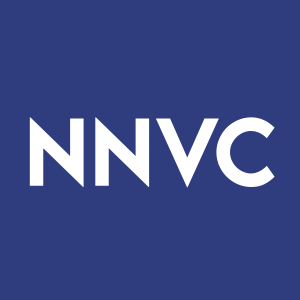Safety in Multiple-Ascending-Dose Healthy Subjects Clinical Trial Part Successfully Established for the NanoViricides Ultra-Broad-Spectrum Antiviral Drug NV-CoV-2 with No Adverse Events Found
SHELTON, CT / ACCESSWIRE / January 29, 2024 / NanoViricides, Inc. (NYSE American:NNVC) (the "Company"), a leader in the development of highly effective antiviral therapies based on a novel nanomedicines technology, reported today that the healthy subjects part of the Phase 1a/1b Clinical Trial of NV-CoV-2 was completed successfully. No adverse events were reported in any of the multiple ascending dose cohorts, confirming the excellent safety of NV-387, the active ingredient in NV-CoV-2.
NV-387 is highly active against many respiratory viruses; all tested Coronaviruses and RSV among them. NV-387 was designed to mimic the host-side feature called "sulfated proteoglycans" ("S-PG"), presenting a biomimetic of S-PG on the surface of the nanoviricide that mimics a biological cell membrane. Over
NV-387 is designed to attack the viral surface and disable the virus from being able to infect cells. This is reminiscent of how antibiotics such as penicillins attack bacterial surface and dismantle the bacteria.
This ultra-broad-spectrum, cross-virus-families, antiviral activity of NV-387 is expected to revolutionize not only the treatment of viral infections but also how we respond to potential pandemics in a significantly more rapid fashion than what happened with COVID-19.
Viral variants are unlikely to escape the nanoviricide drug (i) because even as the virus mutates it still binds to the same host-side features, that the nanoviricide copies; and (ii) such escape is not expected based on the extremely wide spectrum of activity of NV-387, across multiple viruses in each family and across distinct virus families.
All clinical trial subjects were held in the hospital during treatment period. All of them have been discharged and all of them have also gone through the final post-discharge follow-up visit. There were no adverse events reported during treatment or through the follow-up visit. Clinical observations during the in-hospital sequestration did not show any adverse events. No adverse events were reported from lab reports of the subjects for various blood tests, organ function tests, or ECG (heart). There were no dropouts.
These results are indicative of an excellent safety profile of NV-387. These results are consistent with the excellent safety characteristics observed for NV-387 in the pre-clinical studies.
NV-387 has been found to be non-immunogenic, non-allergenic, non-mutagenic, as well as non-genotoxic in various pre-clinical animal model studies leading to the clinical trials. No adverse effects were reported in GLP Safety-Toxicology studies in multiple animal models including non-human primates (NHP, Cynomolgus monkeys). The NOAEL (No-Observed-Adverse-Events-Level) was 1,200 mg/Kg and MTD (Maximum Tolerable Dose) was 1,500 mg/Kg in rats, which indicate excellent safety.
In contrast, most known antiviral drugs have significant dose-limiting toxicities.
The human subject pharmacokinetic (PK) plasma samples have been duly received at the GLP bioanalytical lab in the USA and will be analyzed shortly.
Two different drug products, (i) NV-CoV-2 Oral Syrup, 100mg/mL, and (ii) NV-CoV-2 Oral Gummies, strengths of 500mg and 1,000 mg were in the study. There were three dosing cohorts for each of the drug products.
The Phase1a-Healthy Subjects part was a Single-Ascending-Dose trial, that was successfully completed with no adverse events found, as reported previously in a press release on November 28, 2023.
The Phase1b-Healthy Subjects part was a Multiple-Ascending-Dose trial. The dosing of NV-CoV-2 Oral Syrup was at nominal 10mg/Kg, 20mg/Kg and 40mg/Kg levels, with the first dose being double the nominal amount (a "loading dose"). The dosing of NV-CoV-2 Oral Gummies was at nominal 500mg, 1,000mg, and 2,000mg levels, with the first dose being double the nominal amount (a "loading dose"). In all cohorts, there was a double dose on first day, followed by single doses every 48 hours for a total of five dosing instances (i.e. 6 total nominal doses) over a period of 9 days.
The clinical trial will now undergo data-lock procedures and thereafter biostatistical analyses will be conducted. The final report will become available afterwards.
The Phase 1a/1b clinical trial is being managed by our collaborator and licensee in India, Karveer Meditech Pvt. Ltd., Kolhapur, India, who is also the drug sponsor in India. The trial is being conducted by the clinical research organization (CRO) Pristyn CR Solutions Pvt. Ltd., Aurangabad, India at the Mahatma Gandhi Mission's Medical College & Hospital, Aurangabad, India, as previously described.
NanoViricides, Inc. (the "Company") (www.nanoviricides.com) is a clinical stage company that is creating special purpose nanomaterials for antiviral therapy. The Company's novel nanoviricide® class of drug candidates are designed to specifically attack enveloped virus particles and to dismantle them. Our lead drug candidate is NV-CoV-2, that contains the active pharmaceutical ingredient ("API") NV-387, for the treatment of COVID caused by SARS-CoV-2 coronavirus. NV-CoV-2 in Phase 1a/1b human clinical trials for evaluation of safety and tolerability in healthy volunteers and COVID patients, as well as initial indications of effectiveness in COVID patients.
The same API, NV-387, was recently demonstrated to be active against RSV as well as against ectromelia virus, a mouse model virus used for smallpox drug development.
Our other advanced candidate is NV-HHV-1 for the treatment of Shingles.
The Company cannot project exact dates for the regulatory activities in progressing its drug candidates because of the Company's significant dependence on external collaborators and consultants.
The Company is currently focused on advancing NV-CoV-2 through Phase I/II clinical trials.
NV-CoV-2 is the Company's nanoviricide drug candidate for COVID. NV-CoV-2-R is another drug candidate for COVID that is made up of NV-CoV-2 with Remdesivir, an already approved drug, encapsulated within its polymeric micelles. Remdesivir is developed by Gilead. The Company has developed both of its own drug candidates NV-CoV-2 and NV-CoV-2-R independently.
The Company is also developing a broad pipeline of drugs against a number of viruses, with preclinical safety and effectiveness successes achieved already in many cases. NanoViricides' platform technology and programs are based on the TheraCour® nanomedicine technology of TheraCour, Inc., which TheraCour licenses from AllExcel, Inc. NanoViricides holds a worldwide exclusive perpetual license to this technology for several drugs with specific targeting mechanisms for the treatment of the following human viral diseases: Human Immunodeficiency Virus (HIV/AIDS), Hepatitis B Virus (HBV), Hepatitis C Virus (HCV), Rabies, Herpes Simplex Virus (HSV-1 and HSV-2), Varicella-Zoster Virus (VZV), Influenza and Asian Bird Flu Virus, Dengue Viruses, Japanese Encephalitis Virus, West Nile Virus, Ebola/Marburg Viruses, and Coronaviruses. The Company intends to obtain a license for poxviruses, enteroviruses, RSV and other viruses that it engages into research for, if the initial research is successful. TheraCour has not denied any licenses requested by the Company to date. The Company's business model is based on licensing technology from TheraCour Pharma Inc. for specific application verticals of specific viruses, as established at its foundation in 2005.
Disclosure Statement
This press release contains forward-looking statements that reflect the Company's current expectation regarding future events. Actual events could differ materially and substantially from those projected herein and depend on a number of factors. Certain statements in this release, and other written or oral statements made by NanoViricides, Inc. are "forward-looking statements" within the meaning of Section 27A of the Securities Act of 1933 and Section 21E of the Securities Exchange Act of 1934. You should not place undue reliance on forward-looking statements since they involve known and unknown risks, uncertainties and other factors that are, in some cases, beyond the Company's control and that could, and likely will, materially affect actual results, levels of activity, performance or achievements. The Company assumes no obligation to publicly update or revise these forward-looking statements for any reason, or to update the reasons actual results could differ materially from those anticipated in these forward-looking statements, even if new information becomes available in the future. Important factors that could cause actual results to differ materially from the company's expectations include, but are not limited to, those factors that are disclosed under the heading "Risk Factors" and elsewhere in documents filed by the company from time to time with the United States Securities and Exchange Commission and other regulatory authorities. Although it is not possible to predict or identify all such factors, they may include the following: demonstration and proof of principle in preclinical trials that a nanoviricide is safe and effective; successful development of our product candidates; our ability to seek and obtain regulatory approvals, including with respect to the indications we are seeking; the successful commercialization of our product candidates; and market acceptance of our products. In particular, as is customary, the Company must state the risk factor that the path to typical drug development of any pharmaceutical product is extremely lengthy and requires substantial capital. As with any drug development efforts by any company, there can be no assurance at this time that any of the Company's pharmaceutical candidates would show sufficient effectiveness and safety in human clinical trials to lead to a successful pharmaceutical product, including our coronavirus drug development program.
Contact:
NanoViricides, Inc.
info@nanoviricides.com
Public Relations Contact:
MJ Clyburn
TraDigital IR
clyburn@tradigitalir.com
SOURCE: NanoViricides, Inc.
View the original press release on accesswire.com








